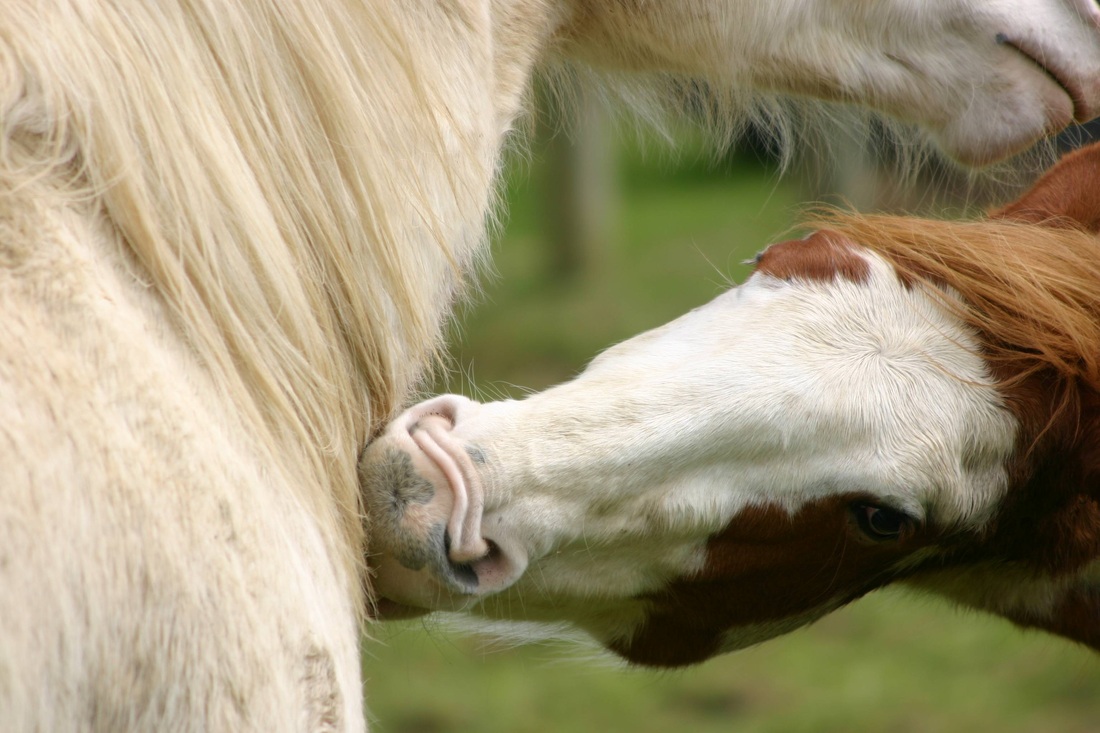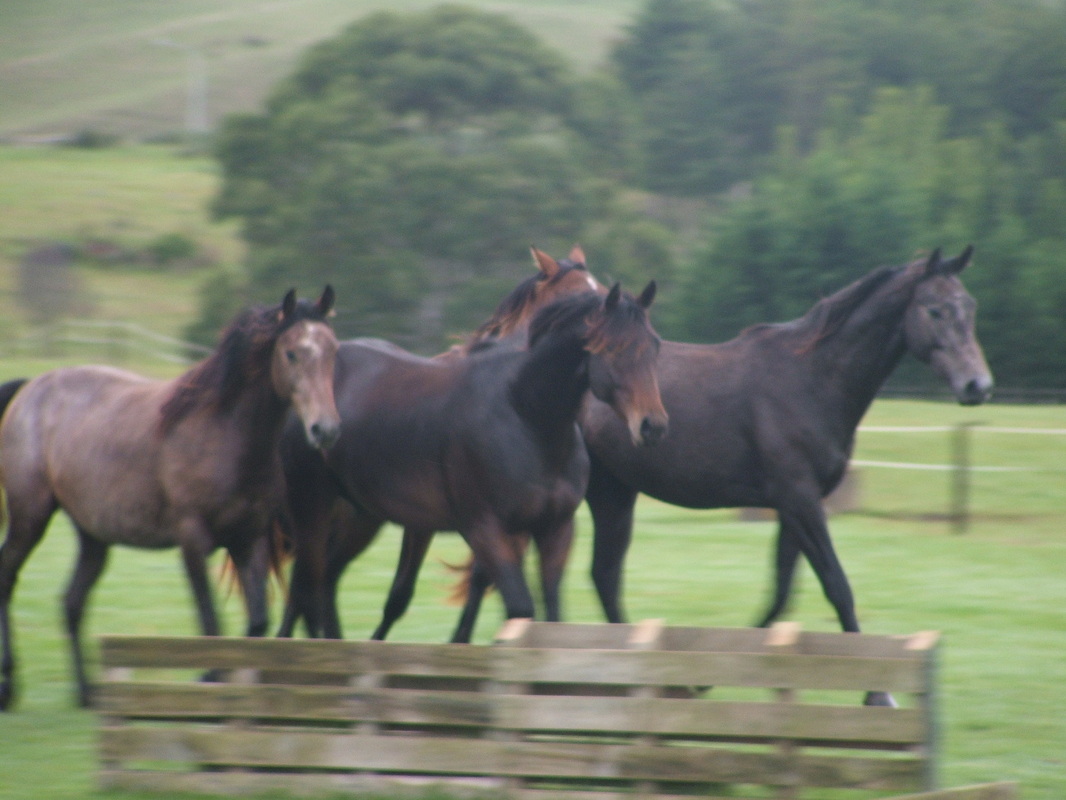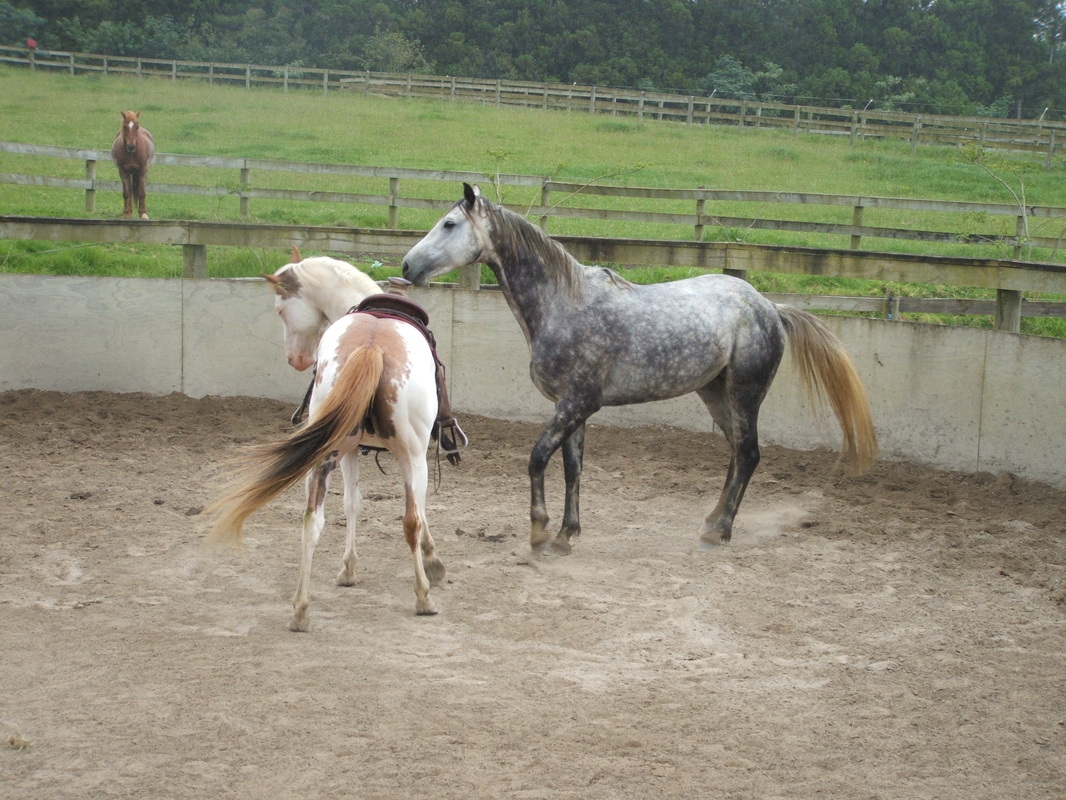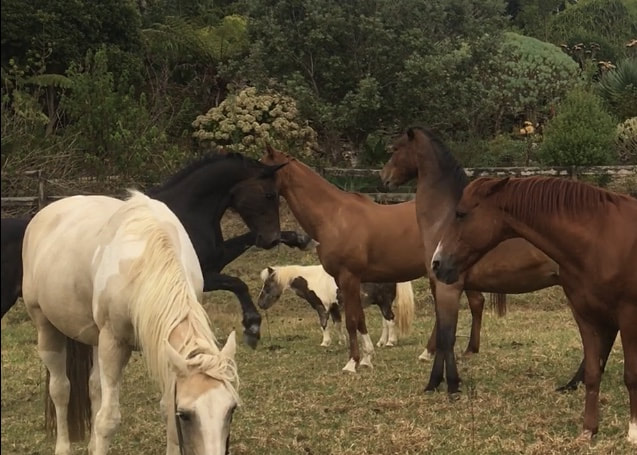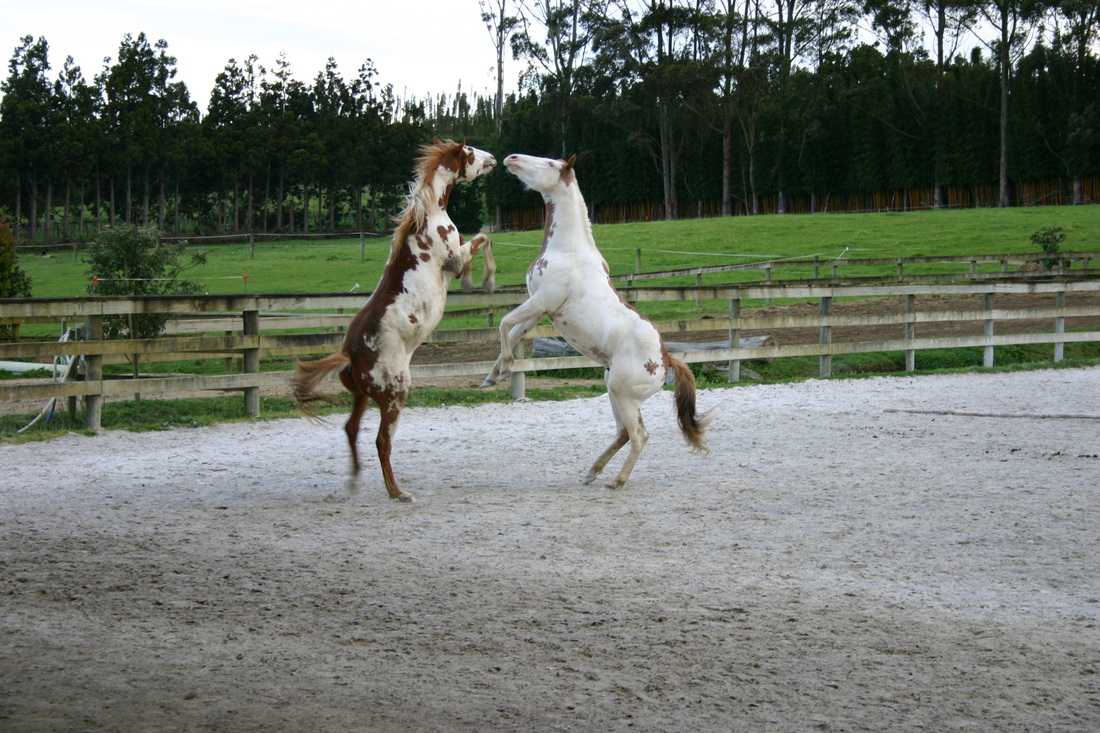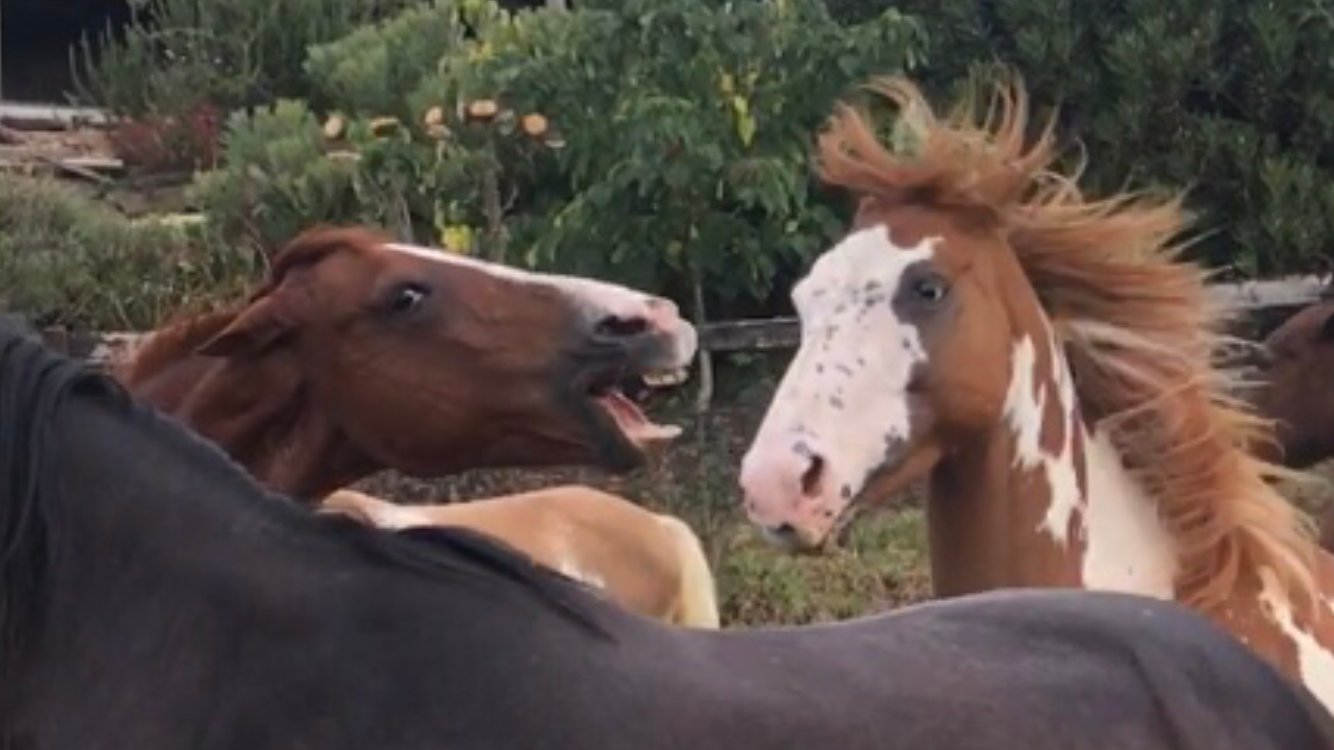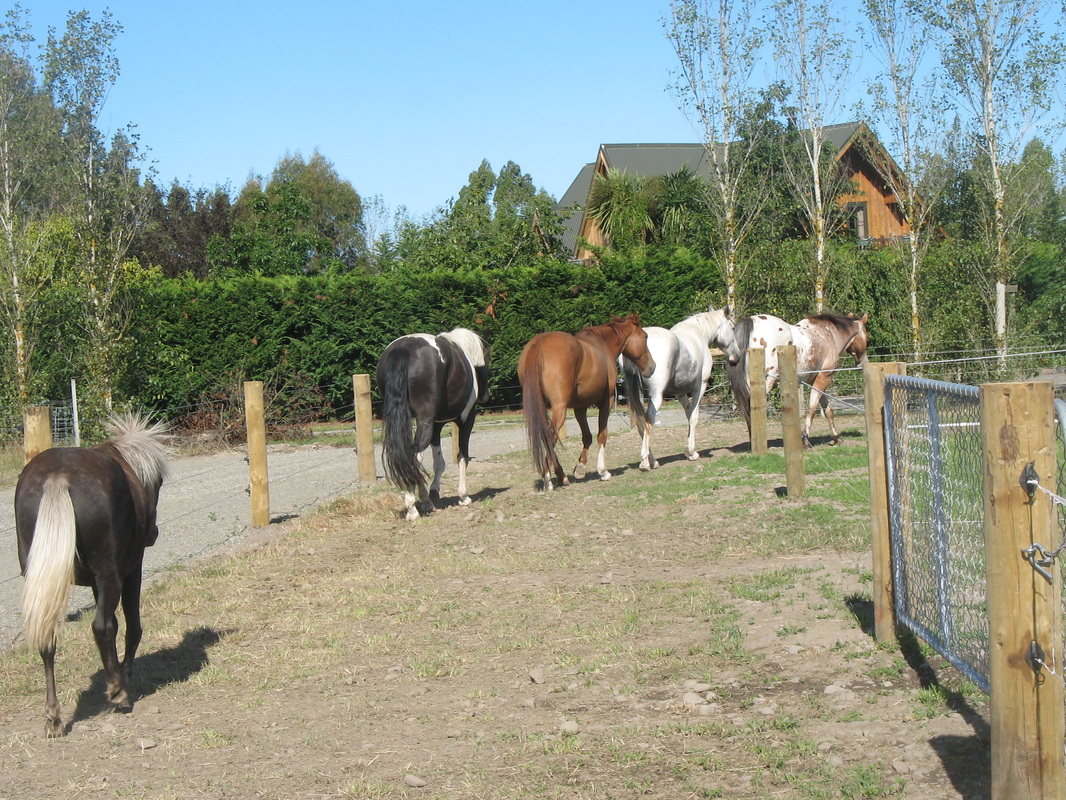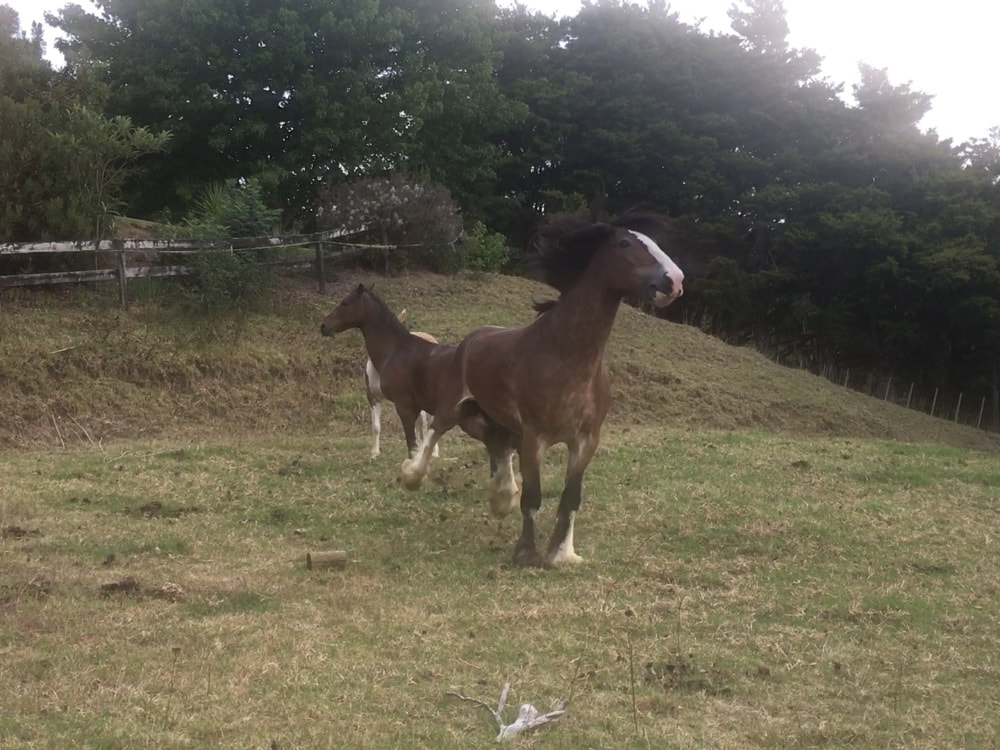|
Ever since leaving the prehistoric jungles the horse has been living in a herd for 24 hours each day. The cerebral cortex of a horse living in a herd is working properly, giving normal, correct orders for the functioning of other subordinated brain centres. The horse is psychologically sound and well balanced. Each member of a herd must know all of the other members and each member must be able to defend its rank and so on. As humans, we know the importance of our psychological health which must be in balance for us to stay healthy. Similarly, only when the horse is psychologically balanced can the health of the entire organism be optimal.
|
|
Herd life is not possible for a horse kept in a box, alone on a pasture, or kept with a goat, sheep or any other animal that is not an equine. Horses need to have equine company 24 hours each day, not just for part of the day. It is also not ideal for horses to only be in sight distance from one another. A horse must be able to see, touch, play and interact with others of its kind.
Many communication problems between humans and their horses can fade away once a horse has become comfortable in a herd. My horse Harry was always on edge and difficult to touch when I first got him. He had been living on his own and actually became quite aggressive to other horses. When he arrived we put him in an open paddock with about 15 other horses. This herd was very happy, they were used to horses coming in and out, and they lived on a track system and had a daily routine. There were a few squeals and some running around but after five minutes they were all grazing. A few days later, all the horses were up on the driveway and were able to eat the sunflowers in the front roundabout. Harry was standing there next to another young horse with a flower hanging out of his mouth; it looked like he had a big smile on his face. That was the first day that I could just walk straight up to him and he was happy to get a rub. The cerebral cortex is the highest steering mechanism of an organism; it collects all the sensory information, processes it and sends orders to the brain centres responsible for the steering of the organs. If the sensory perceptions are harmonious with the animal, the orders from the cerebral cortex do not disturb the other brain centres. If however, the horse becomes stressed from not being able to interact with a herd, the orders sent out by the cerebral cortex alarm the other brain centres, which in turn give unusual or nonsensical orders to their corresponding organs. This can be one of the reasons a horse develops diarrhea, which may lead to colic if other organs are similarly disrupted. The frequency of colic in large equestrian centres, where horses live in box stalls for 24 hours each day, is much greater than those horses who live more naturally. For millions of years of evolution as herd animals, the horse instinctively knows that safety is in numbers and separation from the herd can lead to a death sentence. A mare's fertility is disrupted by stress and unnatural living conditions. Other effects of psychological imbalance are aggressive behaviour, anxiety and replacement behaviour (running around in circles, weaving, wind-sucking etc). |

